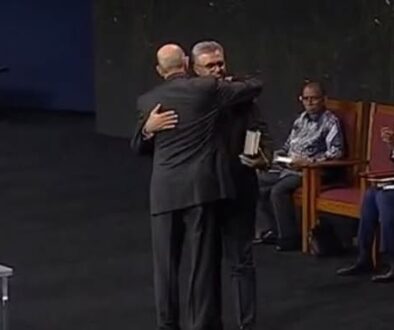“Remnant” Theme Picked Up by “Preppers” and Survivalists
by AT News Team
The reality television cable channel program Preppers has provided wide visibility to the small percentage of Americans who are convinced that society is falling apart or unprecedented disasters will soon bring an end to civilization as we know it today. Christian Century recently reported that Jim Rawles, “an evangelical blogger and novelist who teaches survival skills” has started to use the classic Adventist theme of the “remnant” from the Bible.
Rawles uses the theme differently than do Adventist theologians. He advocates that families protect themselves from the eventual collapse of the nation’s economy by moving to small towns or rural areas in “the American Redoubt,” Montana, Idaho, Wyoming and eastern Washington and Oregon. Much of the material on the blog is technical information about a variety of strategies to simplify lifestyle and improvise technology, some of it parallel to ideas discussed by ecology activists.
There are also comments about what is viewed as the ungodly direction of contemporary American culture and politics. “Even if God has withdrawn his blessing from our nation as a whole,” Rawles has written, “he will continue to provide for and to protect his remnant. … It’s time to distance ourselves from the vile corruptness that we see inside the Washington, D.C., Beltway. It is analogous to the Puritan exodus [from Europe]. They couldn’t fit in and said, ‘We’re going to move to completely virgin territory and start afresh.’ … In effect, we’re becoming pistol-packing Amish.”
There are evidently some links between Adventists and the “Prepper” network. A writer on Rawles’ blog identified as “J.B.” recommends The Seventh Day DVD series produced by an independent Adventist organization and sold in some Adventist Book Centers. Among a list of recommended churches is Bonners Remnant Church, an independent Sabbath-keeping congregation in Troy, Montana, with the same address as Laymen United for Truth, an independent ministry operated by Dennis and Mary Crystal.
“This is all part of the post modern cultural shift in Western society,” observes Monte Sahlin, an Adventist researcher who tracks contemporary trends and their impact on the church. “As institutions have become more massive and complex, there is a counter trend toward the personal, the local, the small, the separate—a human scale,” he told Adventist Today. “Internet technology makes it much easier to function at this level. Many Adventists think of ‘post modern’ as another term for ‘liberal,’ but in fact it is pervasive from the most liberal to the most conservative elements of society and the church.”



